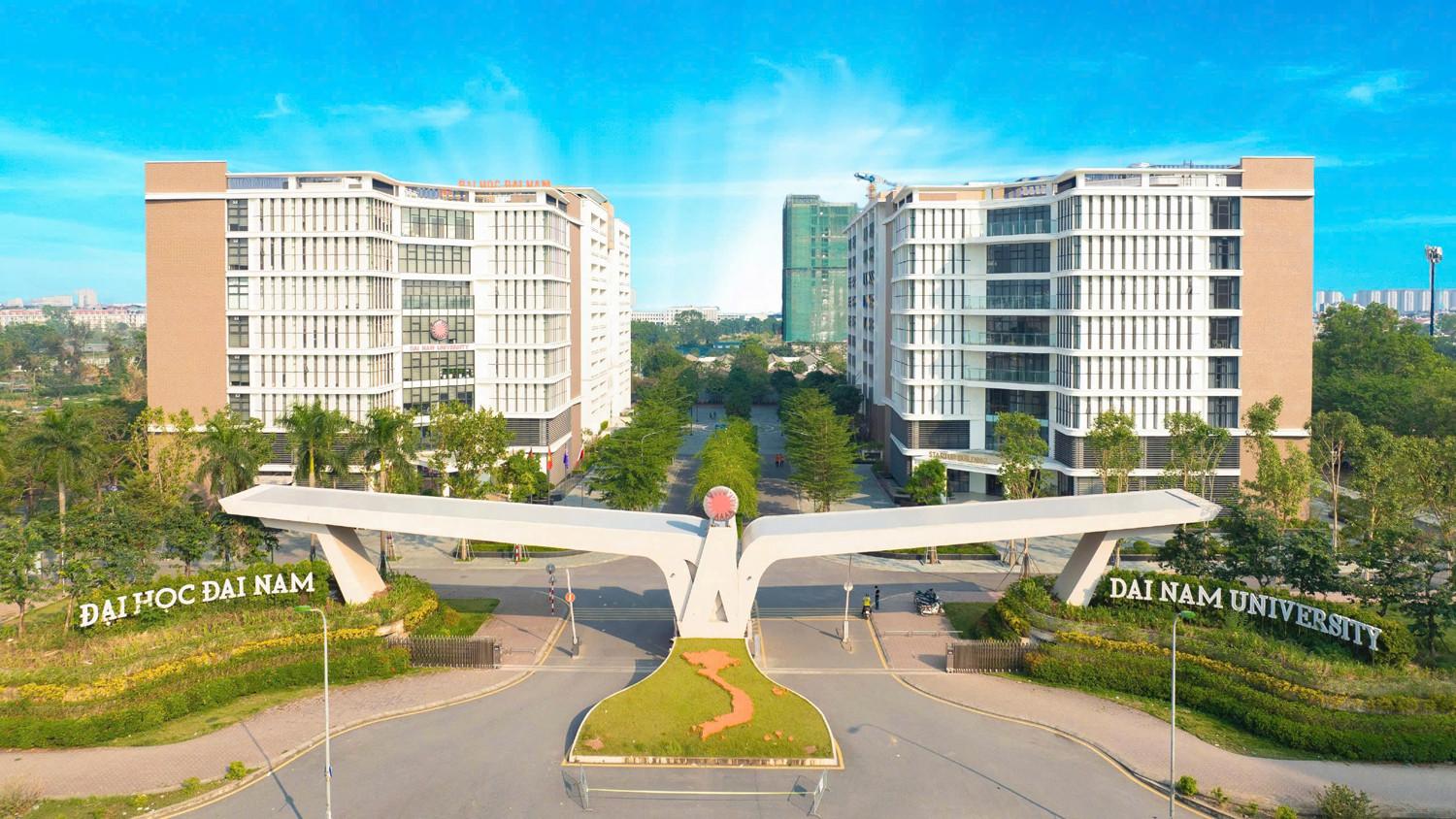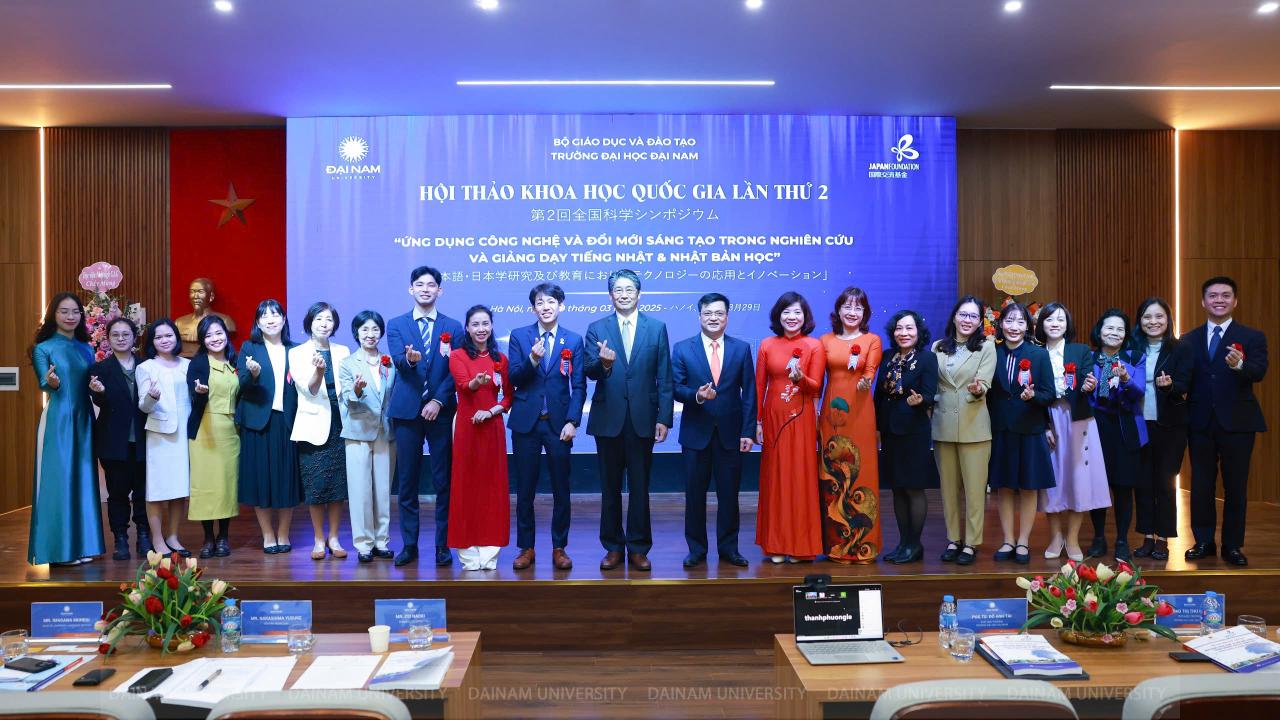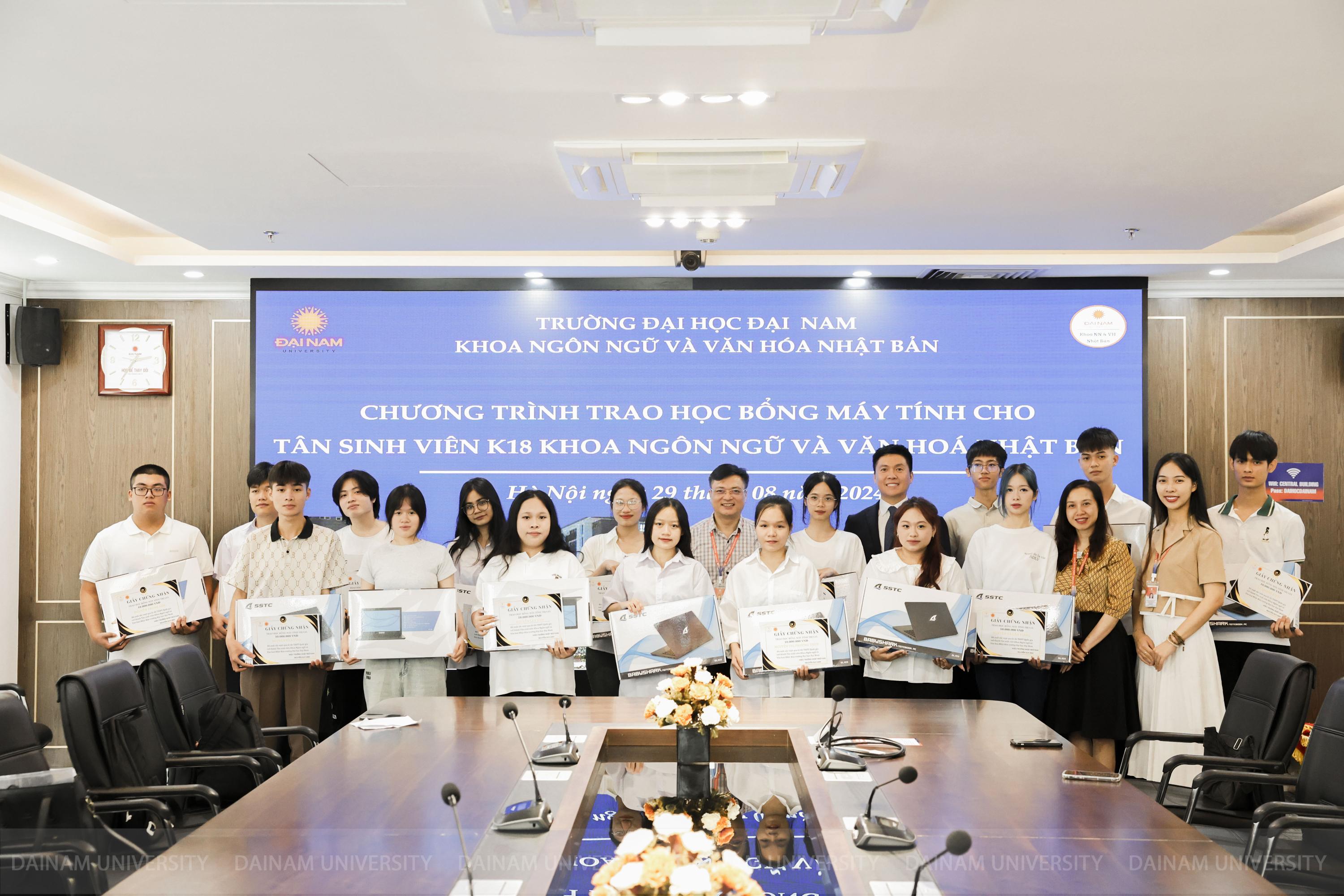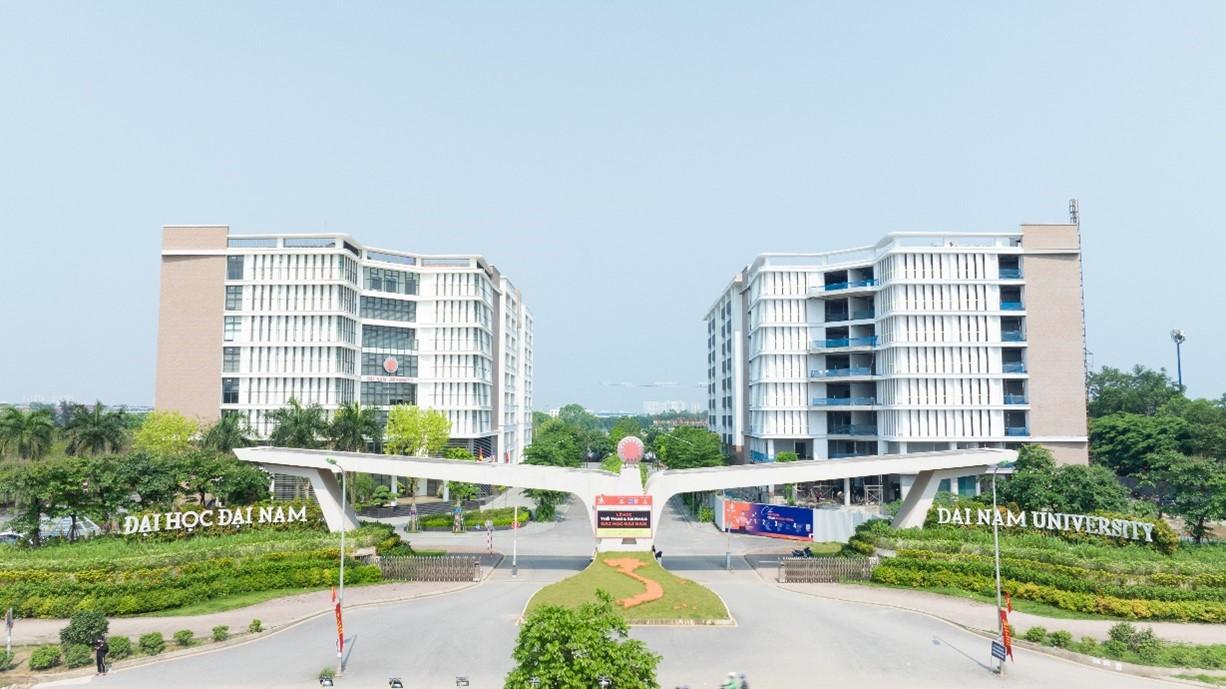Dai Nam University organized a National Conference on Japanese Language teaching methods in the 4.0 Era

On December 16, Dai Nam University held a National Scientific Conference with the theme "Innovating Japanese Language Teaching Methods and Japanese Studies in the Digital Age". The Conference brought together numerous reputable research experts from both Vietnam and Japan, presenting over 30 scientific papers and engaging in lively and practical discussion topics. The Conference serves as an important reference for enhancing the quality of Japanese language teaching and Japanese studies in the era of Industry 4.0.
Key participants from Dai Nam University included: Assoc. Prof. Dr. Pham Van Hong - Rector; Dr. Le Thi Thanh Huong - Vice Rector; along with Deans, officers, and lecturers from various Departments, Offices, Institutes, and Centers.
The guests included: Ms. Okamoto Noriko - Second Secretary of the Embassy of Japan in Vietnam; Mr. Vu Thanh Binh - Deputy Director of the Department of Science, Technology and Environment, Ministry of Education & Training; Mr. Nguyen Lan Trung - Chairman of the Vietnam Association of Linguistics; Ms. Fujigana Kaoru - Japanese language teaching expert at the Japan Foundation Center for Cultural Exchange in Vietnam; Mr. Nguyen Duy Anh - Rector of GAG Japanese Language Institute in Japan.
Additionally, there was participation of scientists, researchers, faculty members, and students from various universities and research institutes in Vietnam and Japan.
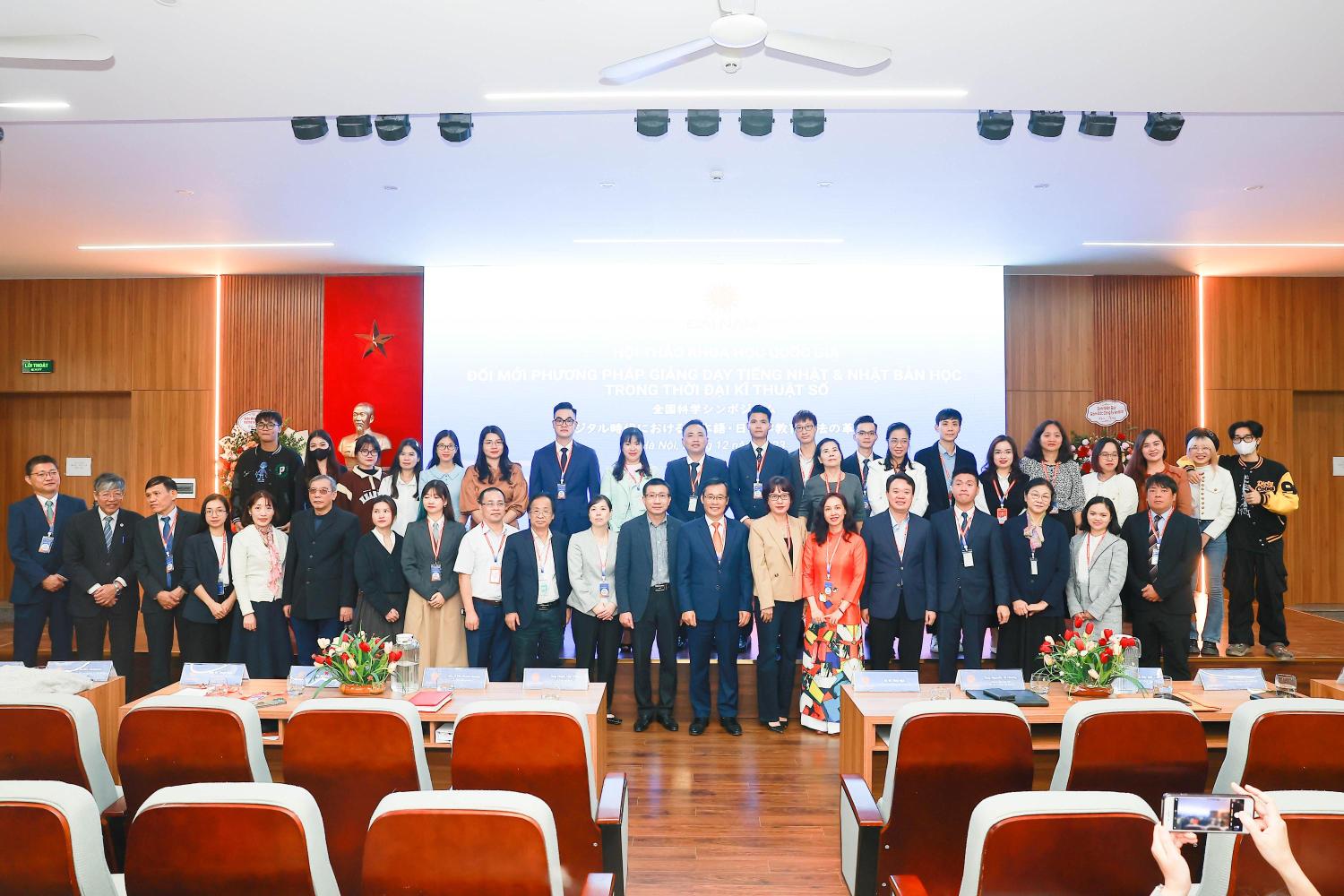
The Conference attracted significant attention from scientists, researchers, lecturers, staff, and students from various universities and research institutes.
In the opening speech, Assoc. Prof. Dr. Pham Van Hong affirmed that the Conference serves as a platform for academic exchange and sharing experiences in research and teaching among Japanese language training institutions both domestically and internationally, the opportunity for scientists and research experts to engage in in-depth discussions regarding the application of technology and the innovation of teaching methods, addressing the demands of the Industry 4.0 era, to expand collaborative relationships between Japanese language training entities in Vietnam and Japan.
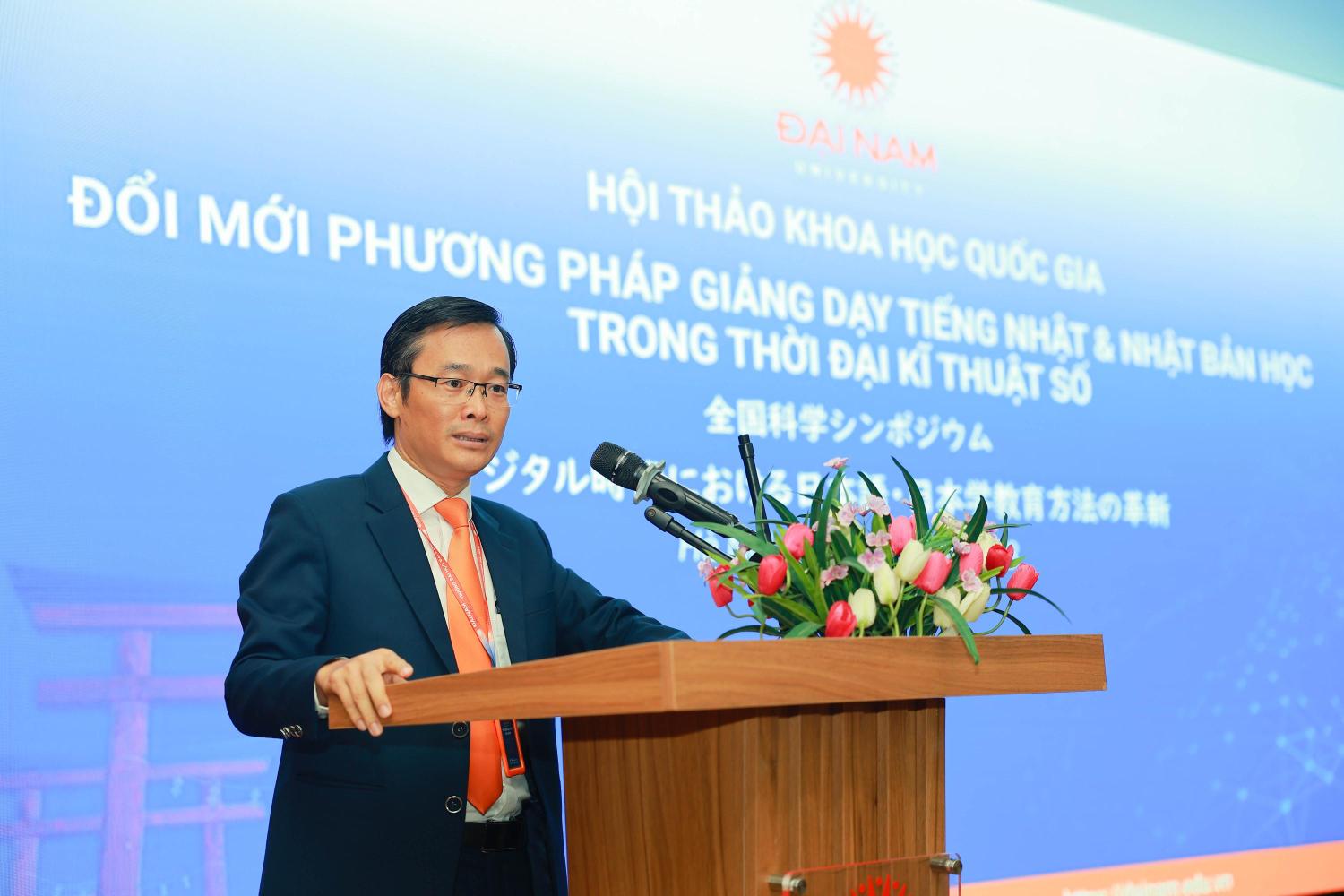
Assoc. Prof. Dr. Pham Van Hong delivered the opening speech at the Conference.
Ms. Okamoto Noriko affirmed that the Conference's theme is highly relevant and aligned with current trends and the discussion content will be beneficial for all participants. On the occasion of the 50th anniversary of diplomatic relations between Japan and Vietnam, Ms. Okamoto extended her wishes for Dai Nam University's continued growth, contributing exceptional human resources across various fields, particularly in high-quality Japanese language expertise. She expressed her aspirations for the ongoing advancement of the Japan-Vietnam relationship, consistent with the 50th-anniversary theme: “Hand in hand, towards the future, reaching out to the world".
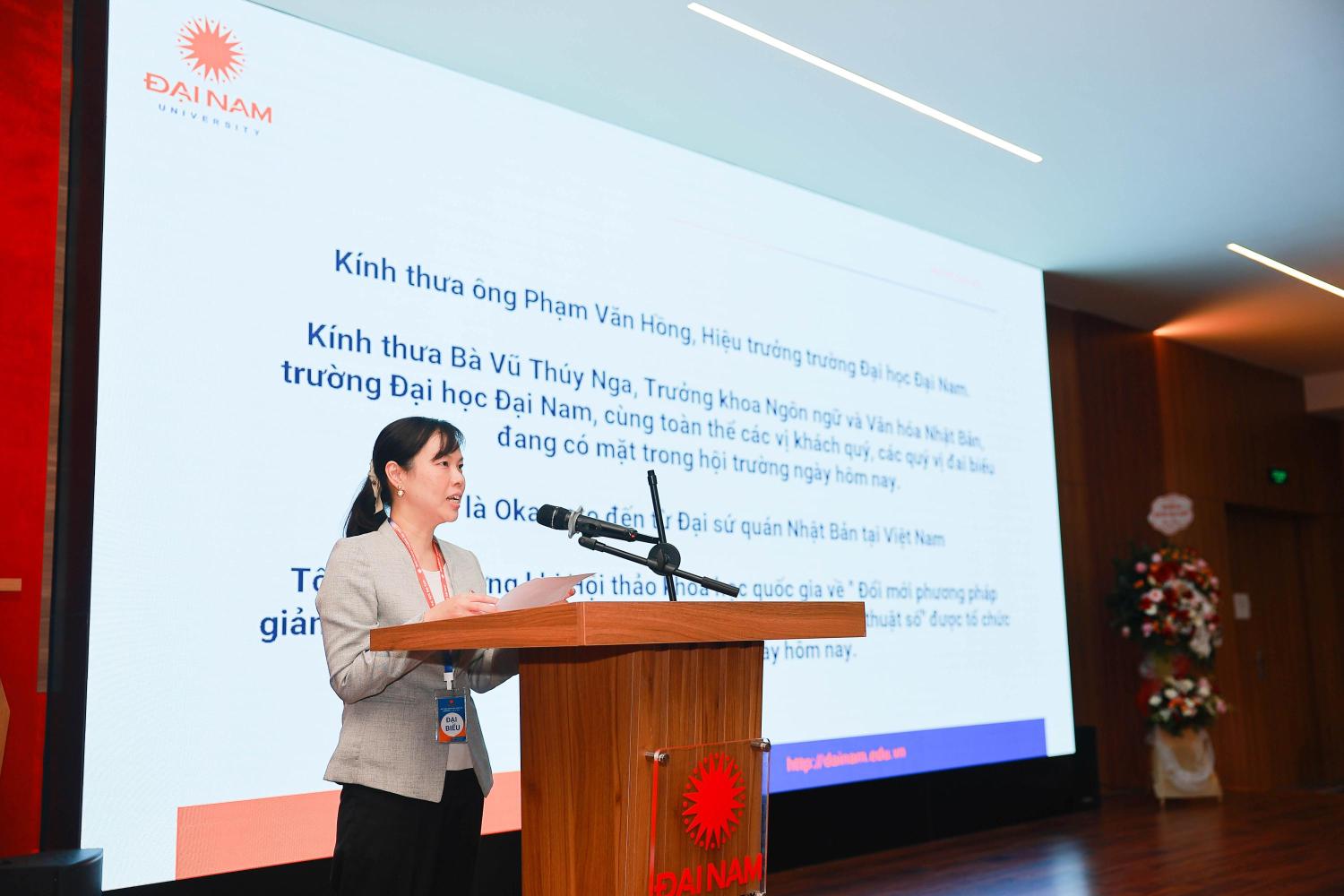
Ms. Okamoto Noriko affirmed: Dai Nam University, as well as other universities in Vietnam, has produced numerous excellent Japanese professionals who have been trained and are currently active across various fields.
What to do to apply technology in teaching and learning Japanese at the university?
Opening the plenary session titled "From Language Teaching and Learning Strategies to the Implementation of Teaching and Learning Japanese at Different Educational Levels in Vietnam during the Industry 4.0 Revolution", Assoc. Prof. Dr. Nguyen To Chung – Lecturer at the Japanese Language Faculty, Hanoi University, affirms: The Industry 4.0 revolution brings substantial opportunities to all fields, and includes education. To integrate and thrive in this digital age, nations require a high-quality workforce proficient in foreign languages. Language teaching and learning programs need innovation, tailored to the digital revolution, meeting the demand for learning anytime, anywhere, on any platform by the learners.
Assoc. Prof. Dr. Nguyen To Chung offers some synchronous solutions:
Firstly, enhancing the awareness of management teams, staff, lecturers, and students regarding the significance of digital transformation in education.
Secondly, innovating training programs, flexibly combining face-to-face and online teaching methods; increasing self-study duration on digital platforms, and enhancing learners' self-research capabilities.
Thirdly, providing pedagogical training, imparting teaching staff with skills in using scientific technology for instruction, and encouraging innovative teaching methods among the teaching faculty.
Fourthly, developing a virtual teaching assistant team to support the teaching process actively.
Fifthly, strengthening collaboration in education with universities and Japanese businesses in the region and globally; enhancing domestic and international internship programs for students.
Sixthly, improving databases, constructing network infrastructure, acquiring advanced technological devices, refining legal systems, and applying management software for teaching the Japanese language on digital platforms.
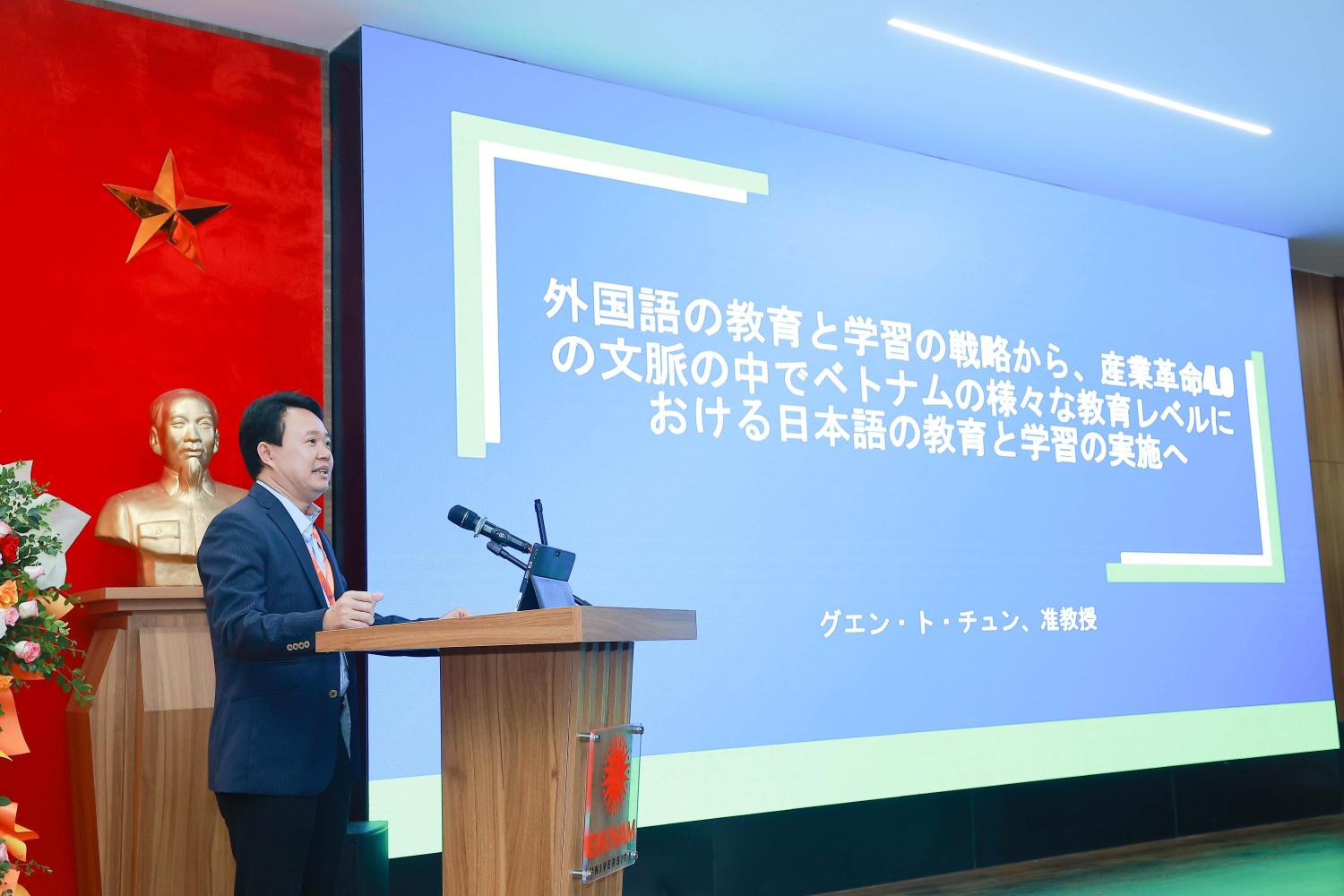
Assoc. Prof. Dr. Nguyen To Chung presented on the implementation of teaching and learning Japanese at various educational levels in Vietnam during the Industry 4.0 revolution.
Applying flipped classroom hours to teaching specialized Japanese subjects
At the program, scientists and researchers commented that traditional educational methods focus on teachers lecturing - learners listening and taking notes; evaluating results through midterm and final exams, etc....Making the role of the learner unenhanced, passive, and dependent on teachers, no longer suitable in modern times.
Accordingly, researchers have expressed their views on implementing the flipped classroom model in teaching specialized Japanese language subjects. This method is considered superior to traditional approaches because: Students autonomously study lecture materials at home, engaging with resources such as reading materials or videos. In-class activities involve in-depth discussions and practical application, with the instructor guiding and supportive. This educational approach enhances creativity, proactivity, teamwork skills, and research abilities, and fosters inspiration for learning among students.
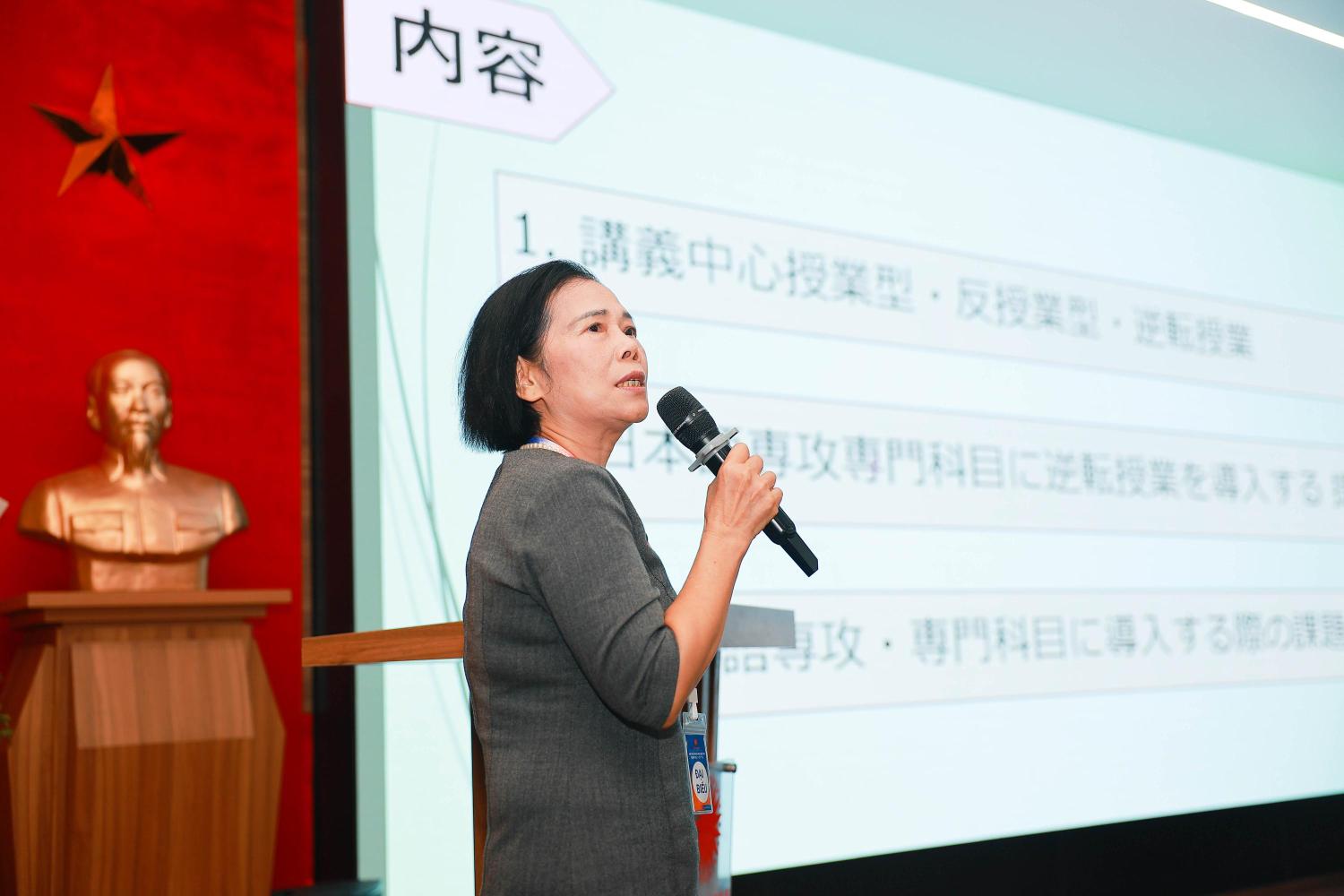
Assoc. Prof. Dr. Tran Thi Chung Toan - Dean of the Faculty of Japanese Language at Dong Do University shared "Application of flipped classroom hours in teaching specialized Japanese subjects".
Dai Nam University promotes the application of digital technology in teaching
With the presentation "Training and Teaching Japanese Language and Japanese Studies at Dai Nam University in the digital age", Dr. Vu Thuy Nga brings a comprehensive view of teaching methods at Dai Nam University.
The development strategy of Dai Nam University is to internationalize education, nurturing students to become global citizens and providing cross-national employment opportunities. Consequently, the University endeavors to enhance foreign language proficiency, technological expertise, and soft skills, enabling students to develop comprehensively and meet the increasingly high demands of society.
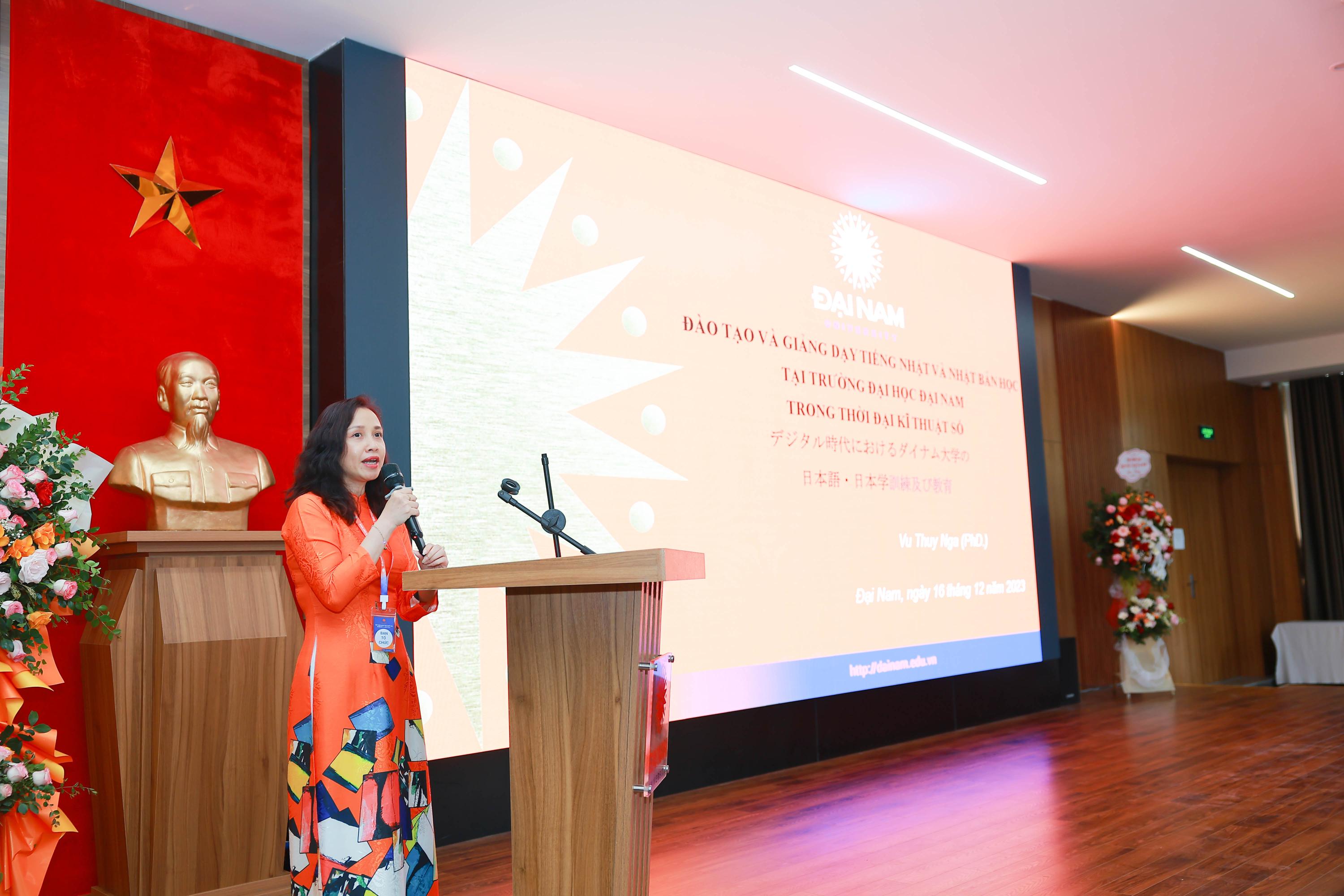
Dr. Vu Thuy Nga affirmed: Dai Nam University has been actively and currently intensifying the integration of technology in teaching the Japanese language.
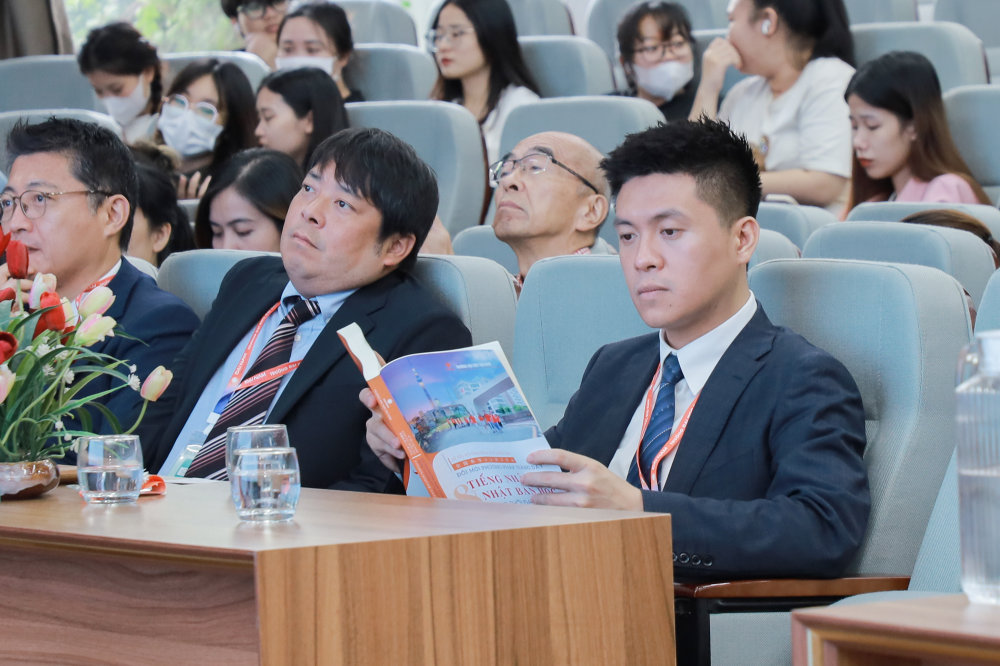
Simultaneously, Dai Nam University is vigorously promoting a training model that connects academia, businesses, and society, meanwhile enhancing practical experiences, hands-on activities, and internships for students. Ensuring that students have access to specialized software and a firm grasp of both domestic and international business processes while still in the classroom. The University creates opportunities for students to participate in internship programs in Japan, learning and managing through online software platforms.
Consequently, students majoring in Japanese Language and Culture from their second year already possess Japanese language proficiency at the N3 level or higher. Currently, over 50% of the Facultyt's students are sent to Japan for paid internships through the Internship program facilitated by Japanese companies, who conduct interviews and recruitment directly at the university. Recently, 20 students from the Japanese Language and Culture Faculty have excellently secured positions at the top Japanese resort corporation, KPG Hotel & Resort.
This is the result of Dai Nam University's efforts in digital transformation, technology application, and active teaching methods in teaching & learning. Specifically, lecturers are trained to use teaching support tools and design lecture slides on learning management software; and actively use teaching support applications such as Quizlet, and Kahoot... to create a vibrant atmosphere and increase learning inspiration. There is an emphasis on enhancing group work activities and improving students' ability to self-study and lifelong self-research according to the school's orientation. Teachers use software to manage, test, and evaluate students proactively and regularly.
Dai Nam University will have numerous practical scientific products to enhance the quality of education and training.
Mr. Vu Thanh Binh - Deputy Director of the Faculty of Science, Technology, and Environment, Ministry of Education & Training, shared, "With the right direction, I believe that Dai Nam University will soon produce numerous practical scientific products to enhance the quality of education and scientific research at the University. This will contribute to the development of Vietnam's scientific and technological potential in alignment with the Strategy for Science, Technology, and Innovation until 2030".
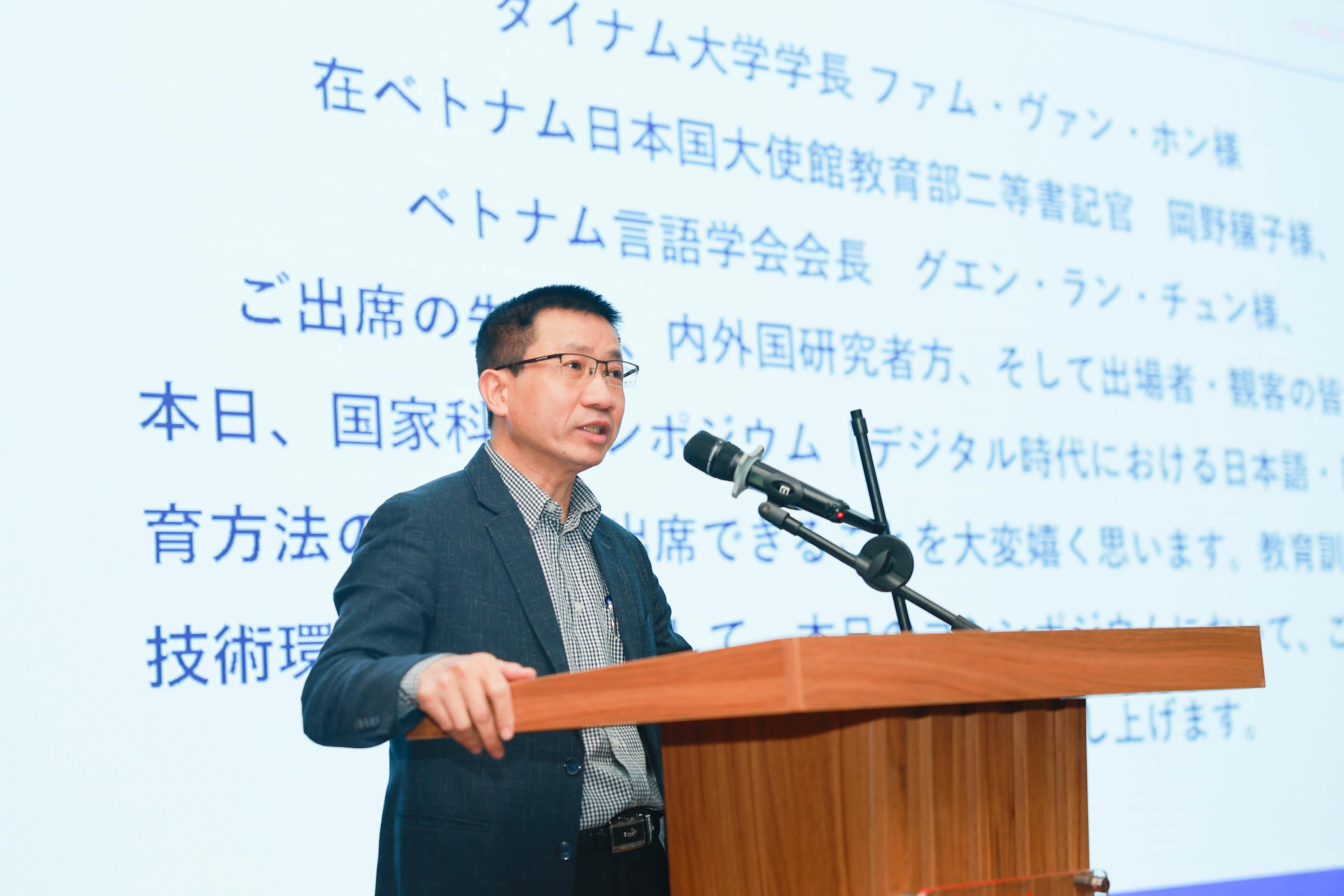
Mr. Vu Thanh Binh highly appreciates Dai Nam University's direction in applying technology to education and advancing scientific research.
Mr. Nguyen Lan Trung - Chairman of the Vietnam Association of Linguistics: "Learning based on practical work is an ideal learning model for students to absorb new knowledge and trends. With close relationships with various Japanese government agencies in Vietnam and Vietnam's representative offices in Japan, Dai Nam University not only provides students with opportunities to explore and understand Japanese culture, broadening their knowledge but also increases internship opportunities in Japan, also has various scholarships to support students throughout their learning process.
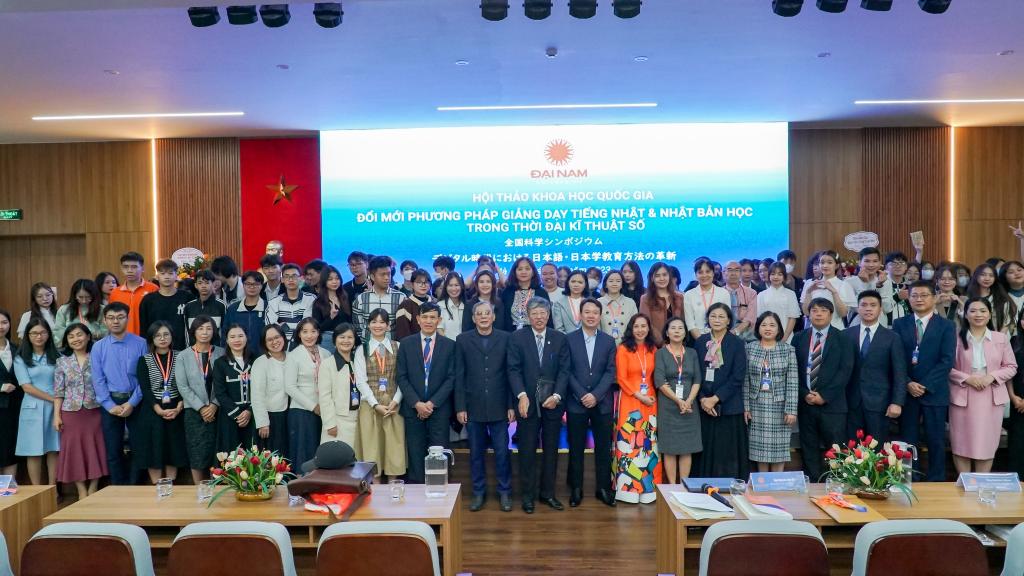
Speakers and scientists took commemorative photos.
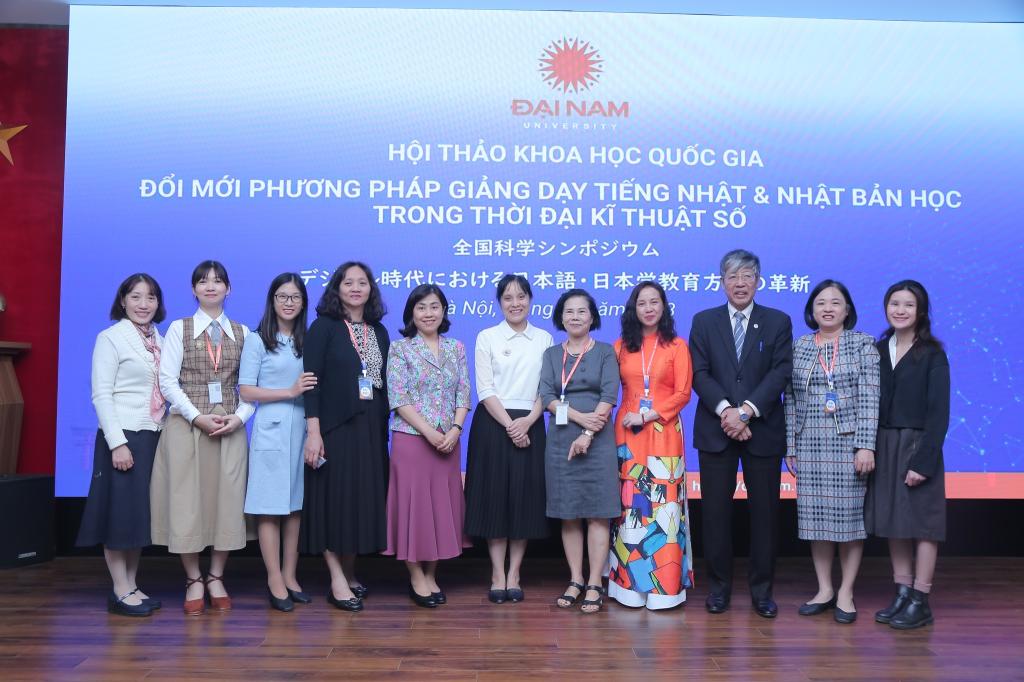
The National Scientific Conference "Innovating Japanese Language Teaching Methods and Japanese Studies in the Digital Age" is truly a bridge connecting participating experts, scientists, lecturers, and students. The Conference left its mark through useful knowledge, experience, and in-depth perspectives from experts from the Ministry of Education and Training, leading professors in the field of Japanese language research and teaching, and Japanese studies shared at the Conference. This will be an important "key" for universities, academies, research institutes, etc. to further improve the quality of Japanese language training in the coming time.
Register for admission consultation 2025
scholarships and tuition support worth up to 55 billion VND

scholarships and tuition support worth up to 55 billion VND


